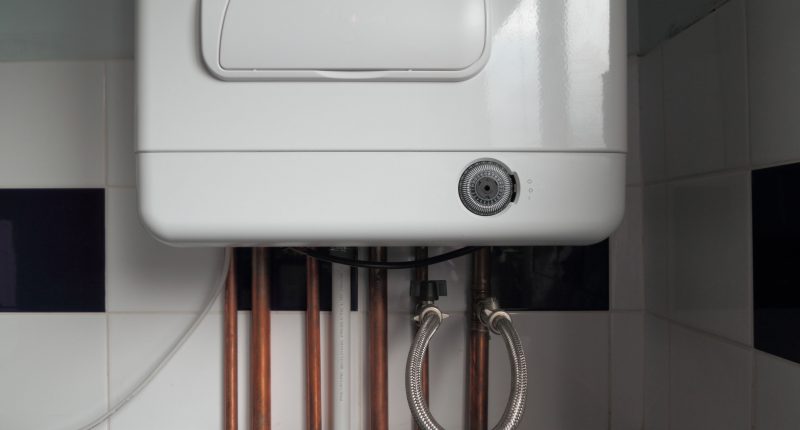A SO-CALLED “boiler tax” which would have seen households fork out up to £120 extra on the central heating systems is set to be axed.
The Department for Energy Security and Net Zero will reportedly ditch the policy under the Clean Heat Market Mechanism (CHMM).
Under the scheme, manufacturers would be required to match a percentage of their boiler sales with heat pumps or face hefty fines from April.
Heat pumps work by transferring heat from the ground or air into your home and are more energy-efficient compared to gas boilers.
Boiler manufacturers had previously said the fines they were facing would have seen them forced to hike the price of installing new boilers by up to £120 in a major blow for households.
But the Government is now set to announce it is ditching the fines for at least the first year of the scheme, reports the Sunday Telegraph, with the announcement coming potentially this week.
Read more in Money
Instead, 2024/25 will be classed as a “monitoring year” where the Government will track the sales of heat pumps relative to boilers.
It is not clear at this stage what will happen in the 2025/26 financial year.
It is understood the Department for Energy Security and Net Zero (DESNZ) will reveal more details on how it will engage with manufacturers “in due course”.
Meanwhile, the Government department said it had seen a nearly 40% increase in people applying for heat pumps in January 2024, compared to January 2023.
Most read in Money
A spokesperson said: “We remain committed to our ambition of installing 600,000 heat pumps a year by 2028.
“We want to do this in a way that does not burden consumers, which is why we’ve increased our heat pump grants by 50% to £7,500 – making it one of the most generous schemes in Europe.”
What is a heat pump?
Heat pumps are powered by electricity and work by transferring heat from the ground or air outside into a building.
They are more energy-efficient compared to traditional gas boilers, which are set to be banned from 2035, typically offering three to four units or heat for each unit of electricity needed to run them, according to Which?
There are two types of heat pumps – air source and ground source.
Under the Government’s Boiler Upgrade Scheme, households can get grants worth up to £7,500 towards the cost of either type.
It comes after Prime Minister Rishi Sunak announced the maximum grant would increase by up to 50%.
Heat pumps can be great for slashing your energy bills and they tend to have a longer life span than gas boilers.
But there are some drawbacks.
The up front cost of installing them can set you back thousands of pounds, even with help through the Boiler Upgrade Scheme.
Air-source heat pumps can run less efficiently in the winter too, when the machine has to work harder to produce warm water.
Plus, a well-insulated home is essential with an air-source heat pump, so you’ll have to factor in the added cost of insulation.
Heat pumps can be quite noisy as well, although this shouldn’t be too much of an issue if you install in the right place.
How to get help paying for new boilers
Hard-up households can get grants to help cover the cost of new boilers through the Energy Company Obligation 4 (ECO4)
The scheme was designed by Government to tackle fuel poverty and help reduce carbon emissions.
But you will have to be on certain benefits to qualify. You could be eligible if you receive one of the following:
- Child Benefit
- Pension Guarantee Credit
- Income-related Employment and Support Allowance (ESA)
- Income-based Jobseeker’s Allowance (JSA)
- Income Support
- Tax Credits (Child Tax Credits and Working Tax Credits)
- Universal Credit
- Housing benefit
- Pension credit saving credit
Bear in mind though, just because you are eligible, that doesn’t mean a supplier is obliged to act.
And you might have to help pay towards the cost of having a new boiler installed. You will also have to prove you are on a low income.
More details on eligibility can be found on energy regulator Ofgem’s website.
Meanwhile, there is a select list of energy providers signed up to the Energy Company Obligation. The full list is:
- British Gas
- E Ltd
- E.ON
- Ecotricity
- EDF
- Octopus Energy
- Outfox the Market
- OVO
- Scottish Power
- Shell Energy
- So Energy
- Utility Warehouse
- Utilita Energy
READ MORE SUN STORIES
Even if your energy company isn’t included above, you might still be able to get a grant through one of them.
You can contact one of the above firms to apply.
Do you have a money problem that needs sorting? Get in touch by emailing [email protected].
Plus, you can join our Sun Money Chats and Tips Facebook group to share your tips and stories.









